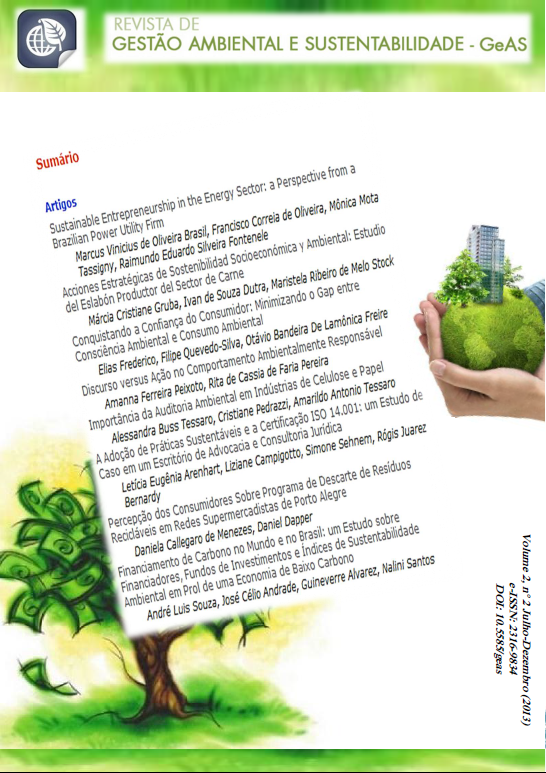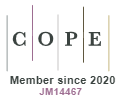Speech Versus Action in Environmentally Responsible Behavior
DOI:
https://doi.org/10.5585/geas.v2i2.48Keywords:
Consumer Behavior, Sustainable Consumption, Theories of Action.Abstract
The need of rethinking the consumption culture in contemporary society brings up the interest in researching how consumption habits are related to environmental preservation. Even though sustainable practices are valuable, the comparison amid how people act as consumers and their assumed ethical stance raises questions. Consumers advocate a concern for environmental issues but research shows that their consumption habits are still old fashioned. This study target the convergence and divergence between environmentally responsible speech and consumption behavior under the perspective of theories of action (Argyris, Putnam & Smith, 1985). Research utilized in-depth interviews and self-reports, using a logbook, to collect information about environmentally responsible discourse and consumption behavior of 11 participants. Data collection and analysis explore dimensions of environmentally responsible behavior (Stern, 1999, 2000): personal domain; behavioral domain; contextual domain; personal capabilities; and habits & routines. Results suggest that environmentally responsible behavior is not always consistent with the discourse due to influence of motivational issues (impotence, lack of interest, sacrifice, and convenience) and contextual issues (financial situation, lack of public policies, time constraints, and culture).










